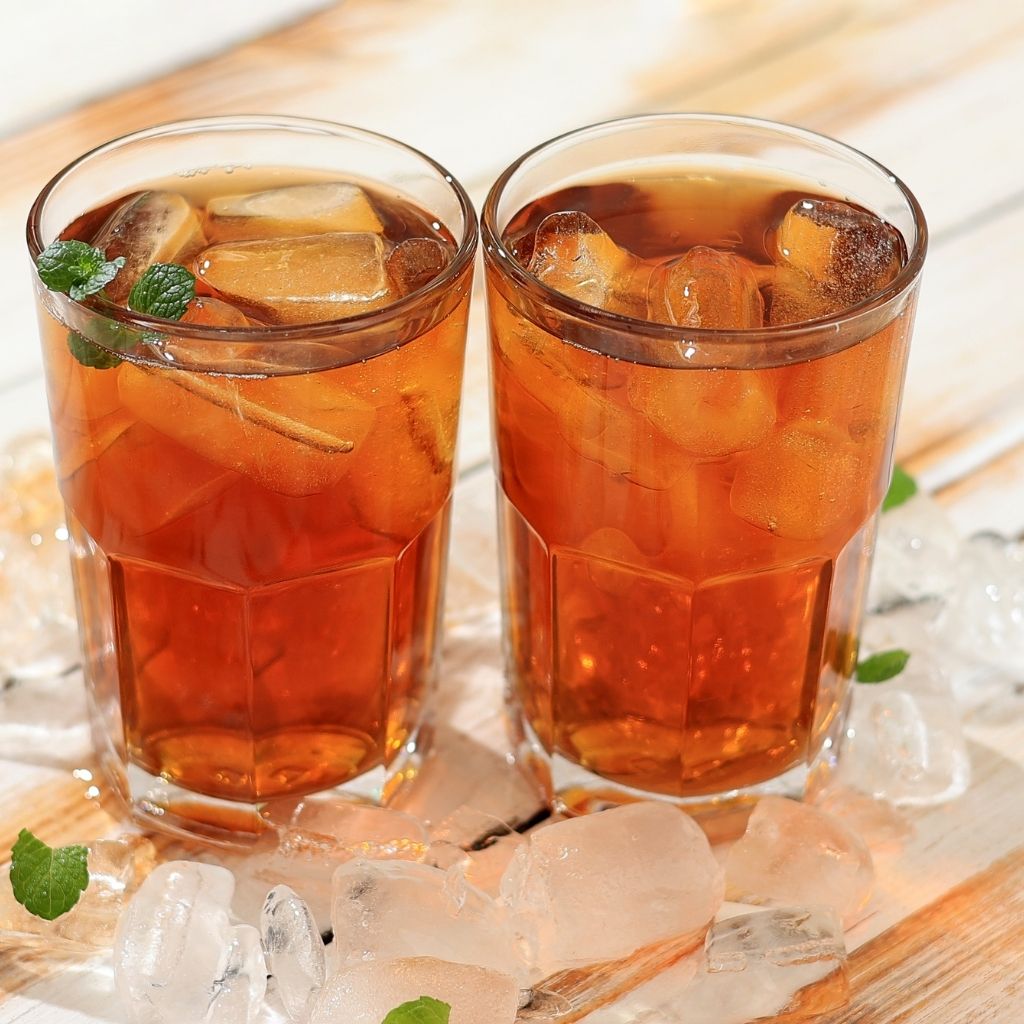
Cold beverages, ranging from traditional iced tea and lemonade to innovative craft sodas and non-alcoholic cocktails, form a diverse and captivating category in the world of drinks. Beyond merely quenching thirst, these beverages offer a multitude of flavors and styles, shaped by a rich history, a wide array of ingredients, and their significance in social interactions and daily life. The charm of cold beverages goes beyond their ability to refresh and hydrate; it encompasses the cultural context, ingredient diversity, and their role in elevating everyday experiences and celebrations.
The historical roots of cold beverages run deep, with ancient civilizations devising early renditions of thirst-quenching drinks. Egyptians sweetened water with honey and infused it with herbs, while Chinese cultures brewed and enjoyed cold tea. In the 17th century, the British pioneered punch, a concoction featuring spirits, water, lemon, sugar, and spices, often served cold. These historical antecedents laid the groundwork for the myriad of cold beverages we savor today.
At the heart of cold beverages lies the choice of ingredients, dictating the flavor and allure of each drink. Iced tea, for instance, draws its essence from tea leaves, which can be selected from a range of options, including black, green, herbal, and fruit-infused teas. Fruit juices, such as orange, apple, and grapefruit, are prized for their natural and vibrant tastes. Smoothies, renowned for their health-conscious appeal, blend fruits, yogurt, and various add-ins like honey or protein powder to craft a balanced and delightful beverage.
The realm of non-alcoholic cocktails, popularly known as “mocktails,” demonstrates the craft of combining ingredients to produce complex and invigorating flavors. Utilizing elements like fresh herbs, bitters, fruit purees, and flavored syrups, mocktails often rival their alcoholic counterparts in terms of sophistication and taste.
Carbonated soft drinks, a globally recognized category, derive their effervescence and sweetness from carbonated water, sugar or sweeteners, and flavorings. The specific composition of soft drinks varies widely, contributing to the vast array of soda flavors and brands accessible in the market. Carbonated soft drinks can further be customized with additional components, such as fruit syrups, extracts, or even exotic spices, to offer unique taste experiences.
The culture surrounding cold beverages reflects a sense of joy, relaxation, and indulgence. Whether it’s a chilled glass of lemonade on a sweltering summer day, a fizzy soda at a festive gathering, or a vibrant fruit smoothie at a hip cafe, cold beverages have become synonymous with pleasure and leisure. Sipping on a cold drink often evokes feelings of comfort and satisfaction, whether one is reclining by the pool or picnicking in the park.
Cold beverages are a significant part of everyday life, offering a wide range of options for different scenarios and settings. Iced coffee, for example, has secured its place as a daily ritual for many, offering a refreshing caffeine boost to kickstart the day. On a sunlit afternoon, a tall glass of iced tea or fruit-infused water provides respite from the heat. Cold beverages also play a pivotal role in the realm of dining, where they complement the flavors of meals and offer a harmonious contrast to spicy or savory dishes.
The culture of cold beverages extends beyond daily life to encompass various events and traditions. In many regions of the world, iced tea is an indispensable element of a classic “afternoon tea” experience, frequently accompanied by a selection of pastries and finger sandwiches. Lemonade stands remain a cherished summertime tradition, where children learn entrepreneurial skills and the joy of offering a refreshing beverage to passersby.
The market for cold beverages is ever-evolving, with new trends and innovations continually emerging. The increasing emphasis on health and wellness has led to a variety of low-calorie and sugar-free options, as well as functional beverages containing added benefits like probiotics or vitamins. The rising popularity of fruit-based and botanical-infused beverages underscores a growing interest in natural and organic ingredients.
The craft and artisanal movement have made their mark on the world of cold beverages, with craft soda companies producing small-batch and handcrafted sodas featuring unique flavor profiles. These craft sodas often utilize natural sweeteners and innovative combinations of botanicals and spices, appealing to consumers seeking an elevated and authentic drinking experience.
Cold beverages also play a significant role in social interactions and gatherings. Cocktail parties and mixology events frequently feature a range of alcoholic and non-alcoholic cocktails, providing guests with an opportunity to explore new flavors and savor a convivial atmosphere. These events showcase the creativity of mixologists who experiment with different combinations of ingredients, garnishes, and presentation to create visually stunning and delectable drinks.
The art of mixology has reached new heights with the rise of intricate and visually stunning non-alcoholic cocktails. These alcohol-free beverages, also known as “mocktails,” offer an array of flavors and ingredients, including fresh herbs, bitters, fruit purees, and flavored syrups, to create complex and refreshing taste experiences. Mocktails are perfect for designated drivers, individuals with dietary restrictions, and those who simply prefer a non-alcoholic option that’s just as exciting as a classic cocktail.
In conclusion, the world of cold beverages is a captivating realm that transcends its basic function of quenching thirst. These drinks come in a plethora of flavors and forms, ranging from traditional favorites like iced tea and lemonade to innovative concoctions such as craft sodas and non-alcoholic cocktails. The appeal of cold beverages extends beyond their ability to refresh and hydrate; it encompasses the history and culture surrounding them, the diversity and quality of ingredients used, and their role in enhancing social interactions and everyday life. As the market for cold beverages continues to evolve, it reflects changing consumer preferences, health-conscious trends, and the enduring desire for refreshing and enjoyable drinking experiences. Whether sipped on a scorching summer day or enjoyed as a treat during a special event, cold beverages hold a special place in the hearts and glasses of people around the world.